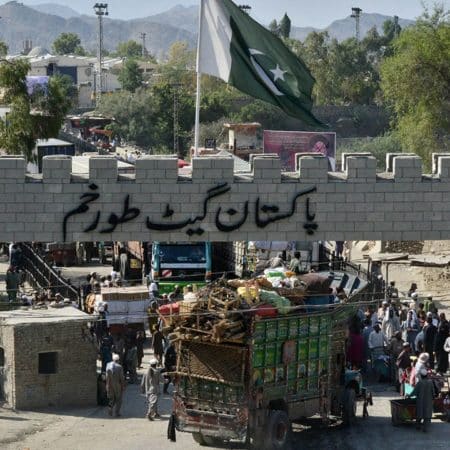
Pakistan Institute of Development Economics
- Home
Our Portals
MenuMenuMenuMenuMenuMenuMenu - ResearchMenuMenuMenuMenuMenuMenuMenu
- Discourse
- The PDR
- Our Researchers
- Academics
- Degree Verification
- Thesis Portal
- Our Portals

Potential for Economic Cooperation with Afghanistan: Proximity Geo-Economic Nexus (Blog)
Afghanistan has been historically linked with Pakistan via trade and other social relations. These relations are based on fundamental economic and geopolitical reasons. However, there have been many ups and downs in our foreign policy relationship which effects our economic relationships as well. It doesn’t go away but becomes informal and volatile. There is a much greater economic and a broader development potential which can be realized by strategic policies by both countries. This will not only help the region in developing more advanced economic base but would also result in peace and stability of the region. Areas where such potential exist include human capital, investment, trade in goods and services and policy coordination.
Nation-building hinges on Human Capital development. Afghanistan is a nation in making and requires a lot of support in the development of the education sector. Pakistan can provide assistance in making this dream a reality by providing help in developing necessary infrastructure and allowing the students to benefit from Pakistan’s established higher and professional education sector. HEC has provided such an opportunity by offering scholarships to 3000 students in early 2017. It is proposed that besides such schemes, other incentives such as improved visa facility for students at all levels of education may be extended.
Afghanistan’s economy is dependent on Pakistan’s resources in all sectors of the economy through formal and informal channels. This provides a huge opportunity for economic cooperation. In this regard, GOP can offer incentives to Afghani producers/businessmen for setting up businesses in the recently developed SEZs where they can produce goods and export back to Afghanistan. Since such production activities are difficult in Afghanistan due to security concerns, Pakistan can take advantage of the potential investment resource availability in Afghanistan. Furthermore, Pakistani Currency is acceptable for trade and the language barriers are minimal, this area of corridor-cooperation has immense potential for both countries.
There is a significant portion of Afghan population which is being facilitated by services sectors of Pakistan such as health, education and banking etc. We need to develop a specific policy to mainstream that for trade in services sector. This should be strengthened with the help of visa-facilitation, information availability and logistical support.
There has always been a trade link between the two countries. According to the World Integrated Trade Solution (WITS) website, Pakistan was the biggest recipient of Afghan Exports in 2016 i.e. it had a 47.5% share of the total exports (around 284 Million US$) and only 18.35% of the imports of Afghanistan were coming from Pakistan (around 1.2 billion US$). However, there are trade flows which may circumvent authorities on both sides due to long boundary and difficult terrain. Realizing this, both governments need to insulate trade from all kinds of geopolitical tensions for enhanced, bilateral and smooth economic activity. This will not only increase the trade flows but also bring in revenue streams for both countries.
Finally, geographic proximity brings potential for economic cooperation. The world is gradually moving towards increased regionalism as the notion of “Distance matters” is in vogue. But institutions are needed for facilitating dialogue, need and identifications of economic cooperation and mutually beneficial policy making. Building an economic forum where all the stakeholders towards potential cooperation can be represented must bring in sustained benefits for the people across the border.
Download full PDF


